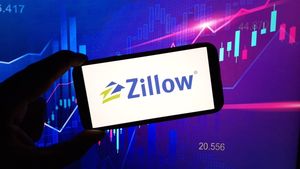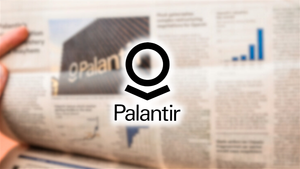New findings show Telomir-1 shuts down cellular energy pathways and mitochondrial function in aggressive breast cancer cells, leading to cell death through iron-dependent regulation.
MIAMI, FL, 2654 / ACCESS Newswire / October 9, 2025 / Telomir Pharmaceuticals, Inc. (NASDAQ: TELO) ("Telomir" or the "Company"), a preclinical-stage biotechnology company developing therapies that target epigenetic drivers of cancer, aging, and age-related disease, today announced new findings demonstrating that Telomir-1 significantly decreases the viability of aggressive triple-negative breast cancer (TNBC) cells - a highly invasive form of breast cancer that lacks hormone and HER2 receptors, offers limited treatment options, and carries one of the poorest survival rates among breast cancer subtypes.
In laboratory studies using human triple-negative breast cancer cells, Telomir-1 caused a clear, dose-dependent reduction in cancer cell survival. As concentrations increased, more cancer cells lost their ability to grow and survive. When researchers added iron back to the system, the cells recovered, confirming that Telomir-1's activity depends on regulation of cellular iron and energy balance.
The iron dependency observed in this study is significant because aggressive cancer cells, such as those found in TNBC, are among the most metabolically active of all breast cancer types. These cells depend on iron to support their rapid growth and survival, and iron metabolism contributes directly to this aggressive behavior. By disrupting that iron-driven process, Telomir-1 appears to exploit a core metabolic weakness unique to these tumors. This selectivity is important because normal cells manage iron differently and are less dependent on it, suggesting that Telomir-1 may preferentially affect cancer cells while sparing healthy tissue.
Telomir-1 has previously been shown to reset abnormal DNA methylation patterns and restore balanced gene expression in models of cancer and age-related disease. In TNBC, certain iron-dependent enzymes-known as Jumonji domain histone demethylases (KDMs), including KDM5A/B and KDM6B-are thought to drive gene-expression changes that make cancer cells more aggressive and resistant to therapy. The new findings suggest that Telomir-1's observed effects on energy regulation and iron balance may stem from its ability to influence these same epigenetic mechanisms. Many aggressive cancers show methylation changes that activate pathways controlling iron use, oxidative stress, and energy metabolism. By helping to restore normal epigenetic control, Telomir-1 may indirectly rebalance these pathways, offering new insight into its broader mechanism of action.
"These findings represent an important step forward for Telomir-1 as we work to develop therapies that can meaningfully improve outcomes for patients who currently have very limited choices," said Erez Aminov, Chief Executive Officer of Telomir Pharmaceuticals.
"Functionally, this discovery provides important mechanistic clarity," said Dr. Angel, Chief Scientific Advisor of Telomir Pharmaceuticals. "The reversal of the effect by iron, together with the established effects on KDMs, confirms that Telomir-1 acts as a key regulator through now-identified biological pathways rather than through nonspecific toxicity. This unique profile-targeting a defined metabolic weakness in cancer cells-is precisely the kind of mechanism that can support both efficacy and safety in future studies."
Telomir plans to expand these findings by testing additional cancer types, including pancreatic and leukemia models, and conducting further animal studies in preparation for its Investigational New Drug (IND) submission.
The Unmet Need in Triple-Negative Breast Cancer
Triple-negative breast cancer accounts for roughly 10-15% of all breast cancer cases and is among the most aggressive and difficult-to-treat subtypes. Unlike other forms of breast cancer, TNBC lacks estrogen, progesterone, and HER2 receptors, leaving patients without the benefit of hormone or HER2-targeted therapies. Current treatment options are largely limited to chemotherapy, immune checkpoint inhibitors such as pembrolizumab (Keytruda), and antibody-drug conjugates like sacituzumab govitecan (Trodelvy), but many patients either do not respond or quickly relapse after treatment.
Despite recent progress, outcomes remain poor: the five-year survival rate for patients with metastatic TNBC is only around 12-15%, and median overall survival remains approximately 11-13 months. (Sources: American Cancer Society, National Cancer Institute SEER Data).
With approximately 30,000-45,000 new TNBC cases diagnosed each year in the United States and several hundred thousand globally, the market opportunity for an effective therapy remains significant and unmet.
About Telomir Pharmaceuticals
Telomir Pharmaceuticals, Inc. (NASDAQ: TELO) is a preclinical-stage biotechnology company developing small-molecule therapies that target the root causes of cancer, aging, and age-related diseases by resetting dysregulated epigenetic programs. The Company's lead candidate, Telomir-1, is being advanced across oncology and longevity indications based on its differentiated ability to restore tumor suppressors, block undruggable enzymes, and reprogram gene control. For more information, visit www.telomirpharma.com.
Cautionary Note Regarding Forward-Looking Statements
This press release, statements of Telomir's management or advisors related thereto, and the statements contained in the news story linked in this release contain "forward-looking statements," which are statements other than historical facts made pursuant to the safe harbor provisions of Section 27A of the Securities Act of 1933, as amended, and Section 21E of the Securities Exchange Act of 1934, as amended. These risks and uncertainties include, but are not limited to, the potential use of the data from our studies, our ability to develop and commercialize Telomir-1 for specific indications, and the safety of Telomir-1.
Any forward-looking statements in this press release are based on Telomir's current expectations, estimates and projections only as of the date of this release. These and other risks concerning Telomir's programs and operations are described in additional detail in its Annual Report on Form 10-K for the fiscal year ended December 31, 2024, which are on file with the SEC and available at www.sec.gov. Telomir explicitly disclaims any obligation to update any forward-looking statements except to the extent required by law.
Contact Information
Helga Moya
info@telomirpharma.com
(786) 396-6723
SOURCE: Telomir Pharmaceuticals, Inc
View the original press release on ACCESS Newswire





